Bert Carson's Blog, page 5
August 14, 2011
700,000 Indie Authors - Who will make it? Why?
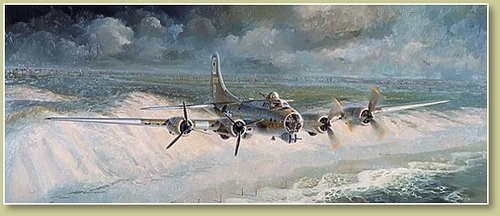 On March 6, 1944, The Eighth Air Force bombed Berlin. Nearly nine hundred American bombers took
On March 6, 1944, The Eighth Air Force bombed Berlin. Nearly nine hundred American bombers took
part, including the B-17G named Little
Willie from the 388th Bomb Group stationed in Knettishall,
England. Over Berlin, flak knocked out
two engines and sent Little Willie
into a dive. Lt. Bernard M. Dopko, the
pilot, struggled to regain control as the plane dove towards the suburbs of
Berlin, pulling out below fifty feet.
Bombardier William Kelly warned, “Look out, Dop, you’re going to run
into the curb!” For the return flight
over Germany, Little Willie flew
below 100 feet at 115 miles per hour. At
one point, Dopko had to bank the craft between two church spires because he
could not fly over them. With its radio
shot out, the bomber was unable to make contact for nine hours and was listed
as missing in action. Finally, as Little Willie cruised ten feet over the
English Channel, Dopko coaxed a third engine back to life long enough to climb
to 5,000 feet, high enough to reach Knettishall. After nine and one-half hours, Dopko landed Little Willie back at Knettishall. Little
Willie had made it home.
From the book – Bomber Missions: Aviation Art of World War
II
Little Willie Coming Home Artist
– Keith Ferris
Now I’m going to revise and reapply the story. Today there are 700,000 independent authors
plying their trade. They are stationed
in every city, town, and hamlet, on the face of the planet. Every day they blog, tweet, post and finally
send their books on missions into the unknown, where they are shot at and often
hit. In an instant many find themselves
diving toward the ground, engines shot out, and communication gone. They fight to pull out of the dive and fly
their wounded books to the safety of sales and fan acclaim. Many of them are listed as missing in action.
Are you MIA? Are
you struggling to find success in your mission as an Indie Writer? Are you going to reach deep and find the
strength and resolve to complete the mission?
Luck didn’t bring Lieutenant Bernard M. Dopko home; his resolve,
dedication, and total commitment did. A
successful writer has to have the same tools that Dopko used to bring Little Willie home.
August 7, 2011
Don't wait for a hero....
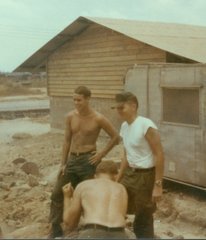
This is me (shirt), Howard Dirler (no shirt grinning), and
Robert Wilburn (no shirt, no grin, filling sandbags). The photo was taken in Vietnam in 1967,
probably in March because Dirler and Wilburn rotated out in April. Note that Howard and I are not working. We were sergeants supervising the never
ending sand-bag-filling detail. Wilburn,
a Specialist 5, should have been exempted from the sand bag detail, by rank, so
I suspect he had committed some minor rule infraction, like missing morning
formation, which he was often guilty of.
This story isn’t about Dirler or Wilburn; it’s about me and
Specialist 4 Castellanos and to be perfectly honest, I play a minor role in the
story. From here on, it’s Castellanos;
one of the most memorable men I’ve ever known.
Dirler and I were promoted from E-5 to E-6 early in
1968. With the extra pay came new
responsibilities, primary among them, we became the Platoon Sergeants of the
two platoons that included all the enlisted men in Headquarters &
Headquarters Company 214th Combat Aviation Battalion. Our units flew support primarily for 9th
Infantry Division, and on occasion Special Forces and units of the Royal Tai
Army. We were based at Camp Bearcat, geographically
30 kilometers from Saigon via helicopter, another 7 kilometers via road.
Camp Bearcat was centrally located for operations in the III
Corp Area. Unfortunately, it was near a
major Viet Cong supply trail. There’s a
verse in Billy Joel’s song, Goodnight Saigon, that sums up life
that close to a VC supply trail –
We held the day in the palm of our hands
They ruled the nights, and the nights
Seemed to last as long as six weeks...
Our unit operated 24/7.
In my platoon, I had clerks, chaplain’s assistants, radiomen, cooks,
supply technicians, truck drivers, linemen, and transit enlisted
personnel. Those who weren’t working
were required to stand morning formation.
Other than making sure they did that and insuring the barracks were
squared away, I had only one other supervisory responsibility. When we were hit, which because of our
proximity to the supply trail, happened more and more often as the war
progressed, it was my job to make sure everyone was out of the barracks. That wasn’t always an easy task since some of
the guys could sleep through anything.
When a new man arrived, I gave each a tour of the company
area and assigned him a bunk. In early
May, our Company Clerk, Specialist Fleury, sent a runner to my room with the
message that I had a new man waiting in the orderly room. A few minutes later, I walked into the
orderly room, took one look at the new man, and thought, this is it; the war is over, there’s no one left to send.
He was short, maybe 5’7” or 5’8”, skinny as a rail, and
white. I don’t mean white in a racial
sense. He was white like someone who has
never been outside in daylight. He had thin,
stringy, blond hair, glasses so thick I wondered how he could see through them,
and a thriving crop of pimples.
Fleury said, “Sarge, this is Castellanos. He just arrived, and I’ve assigned him to
your platoon.”
He shifted his gaze to Castellanos, “Sergeant Carson is your
platoon sergeant. He’ll show you around.”
I showed Castellanos the major attractions of the company
area; the mess hall, supply, dispensary, showers, latrine and the bunker. I told him when we were hit, no matter where
he was or what he was doing, he was to go straight to the bunker. As we finished the tour I said, “Castellanos,
you look pretty young. How old are you?”
In a voice so soft I could barely hear his words he said, “I
turned 18 on Guam yesterday, Sarge. I
was there a week waiting for my birthday before I could come to Vietnam.”
I stopped walking and so did Castellanos. When he looked up at me I said, “You
volunteered for Vietnam, didn’t you?”
His lower lip trembled, and I knew he was working hard to
hold my gaze, “Yes, Sergeant. In fact, I’m
regular army. I enlisted the day I
graduated from high school. Vietnam was
the reason.”
Later, when I thought about our conversation, I realized
that he expected me to give him a hard time for volunteering. Instead I grinned and said, “Me too,
Castellanos. I volunteered to find out
what this was all about and because I figured someday I’d have kids and
grandkids, and I didn’t want to tell them I spent my time at Fort Sam Houston,
Texas.”
We continued our tour and as we walked I said, “Why did you
volunteer?”
“I had to, Sarge. My
grandfather was in the army during the First World War, my father was in the
army during World War Two and my uncle was in Korea.”
“Sounds like you Castellanos guys didn’t miss a single
conflict.”
In an even softer tone he said, “I was afraid I’d miss this
one.”
I laughed, “Wait until it gets dark. You’ll know you didn’t miss this one.”
Just before lights out, I was upstairs in my “private room,”
a corner partitioned away from the open bay with 4X8 sheets of plywood. I was trying to beat my record for
disassembling and reassembling my .45 when there was a timid knock on my
door.
I called out, “Come in,” in my best platoon sergeant voice. The door slowly opened and Castellanos, his
eyes fixed on the floor, cap in hand, slid into the room. I could sense something was seriously wrong. I swung my legs off the bunk and stood in
front of him. In my real person voice I
asked, “What’s up, Castellanos?”
It took some time, but finally he lifted his gaze from the
floor, looked in my eyes, and blurted out, “Sarge, I’m scared.”
“Castellanos, we’re all scared. There are a lot of people out there who want
to kill, us and they’re not very far away.”
He tried to grin but couldn’t quite pull it off. Then he said, “I don’t mean that kind of
scared, Sarge. In fact, that doesn’t
scare me at all.”
“Well, what are you scared of then, Castellanos?”
I wasn’t ready for his answer. “I’m scared that I’m a coward. You see my grandfather was a hero and so were
my father and my uncle. I’m afraid that
I’ll turn out to be a coward.”
That wasn’t covered in my NCO training. I’m sure I stumbled and stuttered before I
said anything but finally I managed to say, “Look at me Castellanos. You’re going to be OK. When the time comes, you’ll know what to do,
and you’ll do it. Trust me.”
He looked at me and burst into tears. I thought I’d totally failed in my feeble attempt
to reassure him until he managed to say, “Are you sure, Sarge? Are you absolutely sure?”
I looked directly into his eyes and said, “I’m absolutely
sure, Castellanos. You’re going to be
just fine. Trust me.”
A few minutes later he left my cubicle. I heard him shuffle down the hall, open the
door, and start down the outside stairs.
Seconds later, Fleury turned off the lights. I pulled my flashlight from under my pillow
and by its light finished reassembling my .45.
Done, I slammed in a clip and jacked a round into the chamber, lowered
the hammer and put the weapon under my pillow.
At two AM a rocket exploded on the 9th Division helipad a
hundred yards away. Seconds later
another hit in the same place.
Before the third one went off, I was out of my bunk, .45 in
my shoulder holster, and flashlight in hand.
The third hit was a mortar, and it was much closer than the first
two. Judging from the sounds I’d heard
between explosions, I was pretty sure everyone was out of the second floor bay,
but not checking wasn’t an option for me.
I began making my way down the east side row of bunks, checking each
one. At the end of the row I moved over
to the west side and started back toward the door.
I could hear choppers, ours and 9th Division’s, cranking
up. Incoming rounds were getting closer,
the explosions lighting up the barracks like lightning flashes. I was halfway down the row when a round
exploded way too close to the west wall of the barracks. In its light, I saw a movement at the end of
the row of bunks. I shouted, “Who’s
here?”
A voice I’d never heard, a confident, cool voice, shouted
back, “It’s me, Sarge, Castellanos.”
In seconds I had the kid by the shoulders, “Castellanos,
didn’t I tell you to go to the bunker when we got hit.”
“Yes, Sarge, that’s what you said and that’s what I did.” Another round went off just off the west side
of the barracks. Castellanos didn’t even
flinch. “When I got to the Bunker I
looked around and didn’t see you. I
asked Fleury where you were, and he said you were still in the barracks making
sure everyone was out.”
A mortar round exploded on the helipad and I spun
Castellanos around and gently pushed him toward the door, “So why did you come
back,” I asked as we started down the stairs.
The kid didn’t hesitate, “I was afraid you might miss
someone, Sarge, and I figured you could use some help.”
For once I didn’t put my foot in my mouth. “Thanks, Castellanos, I appreciate it. We still have to check downstairs,” and with
incoming rockets and mortars falling like rain, that’s what we did. And we did it together every time the VC
called on the 214th until I rotated out five months later. Before I left, I recommended that Castellanos
be appointed platoon sergeant of the first platoon. The battalion commander agreed with my
recommendation and Specialist Castellanos was converted to Sergeant
Castellanos.
My lesson in all of that was simply. The hero we’re waiting for is already here,
and it’s us.
Don’t waste time worrying about what you’ll do when the
going gets tough – instead, know that you’ll do whatever it takes.
August 4, 2011
Humor sells... it always has, it always will
[image error]Robert Parker isn't sitting at his computer writing, he isn't taking the dog for a walk, and he isn't flirting with his wife, Joan. He isn't doing any of those things because he left a little over a year ago; but he isn't gone. He's still with every Spenser fan, and their numbers increase daily. He is still with everyone who cheers when Tom Selleck, aka Jessie Stone, walks into the first scene of a Jessie Stone movie, or Captain Healy shows up to lend the small-town police chief a hand (just like we knew he would), but most of all, as far as I'm concerned, Robert Parker is still with me, especially when I’m writing.
Like every Parker fan, I love the books, and the movies made from them. If there's a problem with the books it is that there aren't nearly enough of them. Besides the sheer pleasure of reading his work, Robert Parker gave me another gift. He made humor alright after my mother dedicated her life to convincing me that wasn't true.
The single most frequent "talk" my mother administered to me centered on the theme, "Everything isn't funny, young man." For a long time I believed her but I still found everything funny. So, with childlike logic, I assumed that something must be wrong with me. I tried to fix my defect but my best effort would only keep the humor from spilling out of mouth for maybe a half an hour and then it would return, amplified.
One of my earliest memories is overhearing my mother tell a friend who had just commented on how cute I was, "He is cute, but don't look at him and don't do anything that will get him started. He thinks he is a comedienne."
Robert Parker made it alright for me to “get started” and never stop. I know that life is funny and that knowledge comes out in everything I say and everything I write. Now I laugh without thinking that there might be something wrong with me. My written humor isn't up to the mark that Robert Parker set, but it will be one day.
If you are one of the dozen or so people on the planet who aren't familiar with Parker humor; here's a very short sample from Painted Ladies:
(Captain Healy talking to Spenser)
"You read a lot," Healy said. "You ever heard of her?"
"No," I said. "But maybe she doesn't know who I am either."
"I'd bet on it." Healy said.
**********
I know who Robert Parker was, is, and always will be, and that makes me smile. In fact it often makes me laugh out loud, even when I’m the only one in the room. And, when I write something that I think is really funny, something like this passage, from Southern Investigation, I know that Robert Parker thinks it’s funny too, and when I listen close I can hear him laughing.
(from Southern Investigation)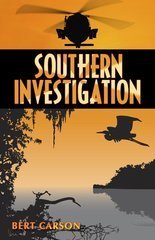
The beginning of the company….
“Welcome home, Bill,” she said, as she smoothly got us moving back to our table. Only then did I realize that, for the past few minutes, we had been the center of attention at Betty’s Restaurant.
As we settled into our chairs David leaned across the table, looked into my eyes and with all the seriousness he could muster, said, “Bill, do you have a lawn mower.”
I couldn’t say anything for a moment then at the same time Shirley and I both lost it. David waited for us to regain some composure and then said, “I don’t know what’s wrong with you two. That was a serious question.” Then we all laughed.
It was a while before I could respond. Finally I said, “Hell no, I don’t have a lawn mower and I don’t want one either.”
Shirley, still laughing, said, “Well so much for Southern Lawn Care.”
Thanks, Robert. You are a helluva mentor.
Sixkill, the latest Spenser novel, is available in the Amazon Kindle Store and other fine bookstores worldwide.
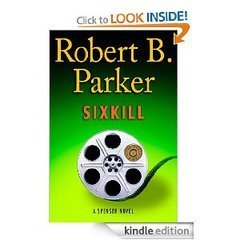
August 2, 2011
How to market what you write

Last Saturday, Ryan Schneider @RyanLSchneider , a new and good
Twitter friend, sent an email about TwitterAdder. Ryan, is in the same boat I’m in. Maybe you’re in there with us - the how do you sell it after you’ve published it
boat. He was persuasive enough to
get me to take a look at the software. I
downloaded the trial version and botched the installation when I mistyped my
Twitter password (be advised, you only get one shot at that on the trial
version).
After fiddling with it for an hour, I emailed Ryan and
asked, “Are you sure about this?”
His response was, “I’m not sure about TweetAdder, but I am
sure about Michael R. Hicks, and he told me about it. He said it was critical to his success.” OK, I’ll be honest here (Michael, don’t take
this personally), my first thought was, since I’ve been on Twitter, I’ve been
hit on by so many people who are going to make me successful I’m beginning to
have flashbacks to hot landing zones in Vietnam, where a lot of people I didn’t
know were hitting on me with the intention of making me dead. However, that didn’t stop me from finding
Michael on Twitter @kreelanwarrior
and discovering that I was already following him and wonder-of-wonders, he had followed
me back. That’s a wonder because as of
last night 872 people that I’ve followed haven’t returned the follow.
I sent a Direct Message to Michael, told him what Ryan said,
and he confirmed that TweetAdder has been instrumental in his success, and he
gave me a link to the info on his site, this link, http://tweetadder.com/ Before
you click it, let me tell you my Michael R. Hicks story and give you some
more info about him – Saturday night I watched the number of people following
him go from 8,999 to 9,000 - at this moment (Tuesday 8/2/11 – less than 3 days
later – 9,324 are following him, and
here’s the kicker, he was on a road trip Sunday, Tweeting from his phone while
I was on my laptop trying to find people to follow who might follow me.
Hopefully, Michael’s new book, The
Path to Self-Publishing Success will
be out this week, but I couldn’t wait, so I went to his web site and dug out a
number of blog entries he has written about what he’s done to be successful in
self-publishing. I shared the link to my
search results with my best Tweeter friend, my wife @carsoncanada and another good
Twitter friend, Kathy Hall, @redmojomama
who I mention because they are great writers, and they would appreciate a
follow. This is the results of my search
of Michael’s blog posts about his marketing
success – which should keep you busy until his book goes live.
Have a wonderful day writing, and selling every word that
you write.
7/5/2011 The Path to Self-Publishing Success is now available -
July 29, 2011
You will be a successful writer when....
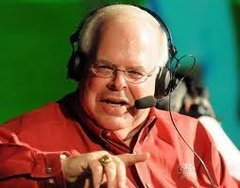 Eli Gold is a well-known sportscaster; well known, that is,
Eli Gold is a well-known sportscaster; well known, that is,
if you’re a fan of NASCAR, Hockey, the National Football League, or, my personal
favorite, Alabama football. Don’t stop reading if you’re not into
sports. Chances are you are a writer
and that’s what this post is about –
writing.
It came to me as I was going to sleep last night that when I
can write the way Eli Gold calls an Alabama football game, then I will be the
writer I intend to be.
I remember my uncle watching Alabama on TV while listening
to Eli call the action on the radio. I
asked him why he didn’t just listen to the television sportscasters. He gave me a sidelong,
you’ve-got-to-be-kidding-me look, picked up the remote, unmuted the sound, and
we both listened to the network announcers for twenty seconds. Then I motioned for the remote. He handed it to me and I pushed the mute
button. “OK, I’ve got it,” I said.
If you’re serious about writing but you hate football,
gut it up for two minutes and eleven seconds.
Click on this link now and play the video to the end. http://tinyurl.com/k6ghc. I promise
you will love it – especially his comments about being in the moment at the end
of the clip. Whether sports
casting or writing, when you are true to yourself, you will be in the now that
Eli talked about. You will be there with
each word, and everyone will want to be there with you.
That’s the difference between the Eli Gold and the regular TV sportscasters. For writers, it’s the difference between
success and slush pile. Eli Gold not
only paints the picture, he puts the listener into it. For a writer to do that, they must go there
first. Only then can they bring their
readers along.
I did some research and discovered that Eli Gold is
exactly what he seems to be – a man who is doing what he’s always wanted to do
and doing it well. In other words, Eli
Gold is happy with himself. Eli was born
in Brooklyn in 1953. From the beginning,
he wanted to be a sportscaster. He
started with hockey, then NASCAR (which he still does) and in 1989 he became the voice of the Crimson Tide. Last month he signed a contract extension
that will take him through 2017. In
addition, he is a professional speaker and the author of three books: Bear’s
Boys, Crimson Nation, and From Peanuts to the Pressbox.
In an interview recorded two years ago he said, “There is
not a single textbook in the world that can teach you how to broadcast a hockey
game or a football game. You have to
take a chance. You have to go out and do
what you have to do. If you have a dream
you must pursue it.”
When I combine those two things in my mind it comes out
this way – You have to follow your calling.
You have to do the right thing; either one without the other is a waste
of time. Nevil Shute, my all-time
favorite author wrote about men and women who always did the right thing and I’ve
followed his lead. If that idea appeals
to you check out my books at www.bertcarson.com
July 25, 2011
John Lock's Marketing Plan - Can you make it work?
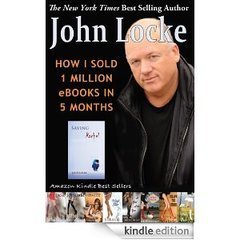 John Locke’s Marketing Plan – Can you make it work?
John Locke’s Marketing Plan – Can you make it work?
John Locke sold one million books in five months. He’s the first self-published author to do
that. As soon as the numbers were
confirmed, he published a book outlining how he did it. The book, How I Sold 1 Million eBooks in 5
Months, is number five in self-help books on Kindle (7/16/11). John didn’t hold back anything – including
all the things he did that didn’t work.
But that isn’t why I bought the book.
To put it bluntly, I bought the book to find out what I had to do to
duplicate what he did.
I’ve read the book twice, and I know that John attributes
his success to two things – (1) his blog and (2) Twitter. I can do that, I thought. I began using my Twitter account that had
been dormant since I opened it months ago.
I polished my web site and blog, and I published my third book that should
have gone live a month earlier. I’ve became
a serious John Locke fan, and I’m not ashamed of it.
Now I have over a 1,000 followers and a number of them have
become good friends. On a trip to the
supermarket a couple of days ago I caught myself “tweeting” everyone in the
store. When I got home I read a couple
of blogs about John that were at best cynical, at worst critical. I’m 68, almost 69, years old. I haven’t been in a physical fight in almost
50 years and where did my mind go when I read those comments? Yep.
That’s where it went. I was
steamed.
I cooled off pretty quick, probably because I’m 68 years old,
or maybe because I live a long way from those who were criticizing John’s
book. Then I realized that anyone who
has a problem with John Locke’s marketing plan doesn’t understand it. The nuts and bolts are easy: Write a Book – publish it on Kindle, Nook and
Smashwords – use Twitter to develop a
following – steer your followers to your Blog with loyalty transfer posts, and
they will buy your book(s) and promote them to others.
That is simple but there is more: a secret. It’s not hidden like an invisible door in a
video game. In fact, he directly
mentions it twenty-five times. The
secret is sincerity. Search the book for
these words and phrases: sincere, sincerity, friends,
close
friend, and close Twitter friends and you will find twenty-five occurrences
– that’s not a secret. However, it’s not
what many people expect or want to hear.
Sincerity cannot be taught or faked. You either are sincere or you aren’t, there’s
no in between. We know when someone is
putting us on. We know intuitively. If John Locke wasn’t sincere, we’d know; and we
wouldn’t buy his books or recommend them to our friends and followers.
Now, right now, today, the issue isn’t John, it’s me, and if
you want to be a successful writer, it’s you.
There are no short cuts to selling a self-published book, and there is
no way to avoid doing it. You, me, John
Locke, Joe Konrath, and Amanda Hocking; all self-published authors, must build
a following; a fan base which will buy what we write, but more than that, we
must find friends who will promote our work.
Here’s what John says about self-promotion,
“Beyond special achievements, you should
virtually never promote yourself on Twitter.
Why? Because if you’re working
Twitter properly, your friends will promote you, and you can publicly respond
to their comments, adding a little along the way?”
Your book(s) no matter how good they are will not generate
promoters – only you, the author, can do that.
Zig Ziglar put it this way, “You can have everything in life that you
want, if you just give enough other people what they want.”
Promoting and ultimately selling books is not a timed test,
and writers who try turning it into one, will fail. John says we have to build our Twitter
friends one at time. Sincerity builds
friendships. There isn’t a sincerity
widget, and there isn’t a marketing company that can make you sincere. Sincerity is a choice that you make every
moment of every day.
JEB Stuart signed all of his dispatches to Robert E. Lee,
“Yours to count on.” If I want Twitter
friends, I have to be someone they can count on. To do that I have to give my friends my full
attention. Years ago a friend who had
just joined Mary Kay Cosmetics scraped up enough money to go to the national
convention. While she was there she met
Mary Kay Ash, the founder of the company.
Later, she told me, “There I was, the newest member of the organization,
actually talking to Mary Kay.” She
paused, reliving the moment and then she said, “Bert, for at least five
minutes, probably more, Mary Kay talked to me and in all that time she never
broke eye contact, totally ignoring all the people who were trying to get her
attention. She was mine, and I knew it.”
That’s the way to convert followers to friends to supporters
– there is no other way.
July 7, 2011
A Perfect Game
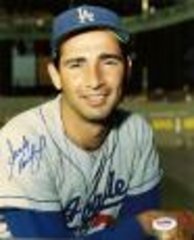 Last week, Don Sutton, Atlanta Braves radio
Last week, Don Sutton, Atlanta Braves radio
announcer, told this story about Sandy Koufax. Don’t stop reading
because you aren’t a baseball fan because it’s not a baseball story. Oh, it might sound like one initially, but
trust me, it isn’t. This is a story about
attitude, or perspective, or goal setting, or… well, read the story and you’ll
know what it’s about.
Both Don Sutton and Sandy Koufax are enshrined in baseball’s Hall of Fame. That means they are among
the best that have played the position.
They both played for the Dodgers: Koufax from 1955 – 1966; Sutton from
1966 – 1980. This isn’t a story that has
been rewritten and changed and rewritten until it has no connection with
truth. This is a first-hand account of
what Sandy Koufax told Don Sutton when Don asked him if his goal was to pitch a
perfect game every time he pitched.
Before I tell the story there are some definitions you
should know. A perfect game is 9 innings long, 27 batters come to the plate, and they
are all retired – no one gets on base.
There have only been twenty perfect games in the history of major league
baseball, which covers more than 100 years.
A no hitter meets the
definition of a perfect game with one exception; someone got on base by either
being walked or hit with a pitch. A shut out is a game in which the
opposing team scores no runs.
Now, “the rest of the story.” When Sutton asked Koufax if his goal was to throw
a perfect game every time he pitched, he said, “Yes. And I kept that goal until I walked a batter,
then I revised it and determined that I would pitch a no hitter. That remained my objective until someone got
a hit. If that happened I decided that
the game would be a shut-out. If they scored
a run I made a final revision of my objective for the game. I committed
to do everything I could to make sure we won.”
Everything we choose to do requires an
expenditure of time and effort. Get the
most from your investment. Commit to a “perfect
game” in everything, every time. If
something stops your perfect game, revise your goal just like Sandy Kovacs,
who, by the way, is one of the twenty pitchers to pitch a perfect game.
March 5, 2011
Living in Manageable Moments
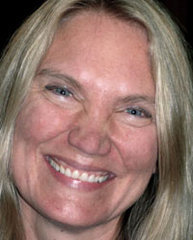 This is Elise Forier Edie. I didn't know her until yesterday and then I heard her read her essay. Now I know her and I'm better for it. I'll bet if you take the time to read her words you'll feel the same. More about her at the end....
This is Elise Forier Edie. I didn't know her until yesterday and then I heard her read her essay. Now I know her and I'm better for it. I'll bet if you take the time to read her words you'll feel the same. More about her at the end....
Living in Manageable Moments
I am an addict.
My addiction is the cornerstone of my life. I am never without it. Lovers come and go, wars are won and lost, tragedy and triumph gallop by in equal measure. It rains. It snows. Stars fall from the sky. Through it all, my addiction is there for me. Whether I am using it or not, it is always there.
I attend 12-step meetings. I sit in a circle with other addicts and we listen to each other's stories. We try to practice compassion, acceptance, honesty, humility and surrender. I am very bad at all of these things. As an addict, I have spent my life specializing in unkindness, arrogance and control. I am a skilled manipulator. I lie with frightening ease. I don't want to be honest. I don't want to be seen and understood. I want to feed my addiction. Sometimes, that's all I want.
Movies make recovery from addiction look painful, dramatic but ultimately rewarding. The truth is, recovery - like a lot of life - is just really, really tedious. I make the same mistakes over and over again. I don't know how to be patient. I have trouble even recognizing the truth, let alone telling it. I don't like admitting I have no control. I can't imagine living the rest of my life like this, feeling this helpless, feeling this small, feeling this inept. But I believe I have to try. I have to try to do better. I believe no matter how many times I fail and fall down, I have to pick myself up and keep trying to kick this. I don't know if I'll succeed.
I break my life down into manageable moments. I have found I can usually get through a moment. Right now, I feel scared, but it's only for now. In a moment, this might change. Right now, my addiction whispers, "I know exactly what you could do to feel better, baby." But in a moment, I might feel better anyway. So I wait until the next moment.
I believe this is the way I can create a better life for myself, one little moment at a time. I can make a good choice, right now. I can do what I have to do, right now. I can say the truth, just this once. In this moment, I can be grateful for what I have. In this moment, I can strive to forgive. I might do something stupid five minutes from now, but right now, in this moment, I can try to change my life.
In the end, I believe this is all I have, just right now. I have right now. It's enough. It's enough to make a difference. It's enough to begin to become a better person. I am everything I need to be to get through right now.
***
I heard Elise read her essay on Bob Edwards Radio yesterday. In fact, I drove a few extra blocks so I wouldn't miss anything she said. You can hear her read it and get a transcript at http://www.bobedwardsradio.com/
February 23, 2011
JJ's - The Home of Social Networking

Highway 72, from Memphis to its junction with I-24, 30 miles
northwest of Chattanooga, is a well-travelled four lane highway that passes
through both northern Mississippi and Alabama.
About halfway between Memphis and I-24 is the small-town of Cherokee,
Alabama. On the north side of Highway
72, between the Exxon station and the pharmacy, is JJ’s Restaurant.
I had breakfast there last Saturday morning like I’ve done a
few times in the past few months. There
are two distinct customer sections inside JJ’s.
The first, or center ring as I think of it, is the one you enter when
you step through the door. There are six
booths and three tables in the center ring.
The booths are arranged three on the outside wall and three on the
opposite wall with the tables running lengthwise in the center.
I never sit in the center ring. It’s just too busy for me, and I have an idea
that you have to have a reservation to
sit in one of the booths or a special invitation to be sit at the center tables
which appear to be reserved for guest speakers.
To reach ring number two, you must pass through the center
ring and an informal visual examination conducted by those occupying the booths
there. I’ve found that if I hold my
Alabama Driver’s license on my forehead the visual check is a piece of cake. At the counter, which separates the dining
area from the kitchen, you need to turn right to enter ring number two. This ring is used by older people, like me,
and couples, who are relegated to the four booths in the front of ring two. There they receive less efficient service
because of their distance from the kitchen.
However, they are so preoccupied with each other, they don’t usually notice.
Last Saturday I sat in my favorite booth and listened to the
old guys, four at one booth and two at another, talk about: the weather, body
part replacement, and a pickup truck that burned during a hunting trip. The burning truck got more attention than
weather because there were two boxes of ammunition on the hood when the fire
started and that delayed attempts to put out the fire.
Directly across from me, an old woman ignored the guys and
kept her attention totally on the obituary section of Friday’s paper as she ate
her scrambled eggs and grits and sipped coffee from a heavy white mug advertising
the “Hospice of the Shoals – a special kind of caring.” It isn’t accurate to
say the old woman ignored the old men; she was oblivious to them while they
ignored her.
Food is incidental to conversation and entertainment at JJ’s,
however, I should note that it is delicious and grossly underpriced. I had my usual veggie omelet, biscuits, and
coffee, all for $3.25. The waitress, an
attractive, efficient, middle aged woman, is loved by everyone. As I watched her work I thought of a face-up
card in a game of poker. The card
becomes part of everyone’s hand though it doesn’t belong to any particular
player. That’s the way everyone in JJ’s
thinks of the waitress. To the old men she
is a daughter or granddaughter while the younger ones considered her a sister,
girlfriend, or maybe even an imaginary, perfect, wife. By the way, that happens without a hint of impropriety.
As I was eating, I noticed that there was little sound
coming from the center ring, but it’s clear in JJ’s protocol that one must keep
their attention in the ring they occupy, so I didn’t turn around to look. Truth is I just thought that none of the
regulars were present. Finished, I
nodded knowingly to the old men, spoke wordlessly to the old woman, and took my
check to the counter. As I stood in line
to pay I looked over the center ring.
Every booth was occupied by two men.
There were twelve men in the center ring and almost no noise. The reason for the hush was seated at the
center table - an attractive, middle-aged black woman, wearing jeans and white
sweat shirt who was speaking quietly.
Her gray streaked hair gave the appearance of wisdom, and her soft
speech confirmed it. Though I couldn’t
hear what she was saying, her audience could, and they were hanging on every
word. I wanted to sit down and listen,
but every seat was taken and besides, I wasn’t qualified to sit in the center
ring.
I paid and walked down the long hall to the men’s restroom,
turned right at the “do not piss off the porch sign,” and stepped into the
unoccupied tiny toilet. Finished, I
walked back through the center ring.
Nothing had changed – the woman was still talking softly, and the men
were hanging on every word. As I passed
her table, without pausing in her discourse, she looked at me and smiled. In that split second I experienced the charm
and wisdom that held the center ring enthralled.
JJ’s – the original home of social networking – next time
you’re in that part of the world, drop in.



